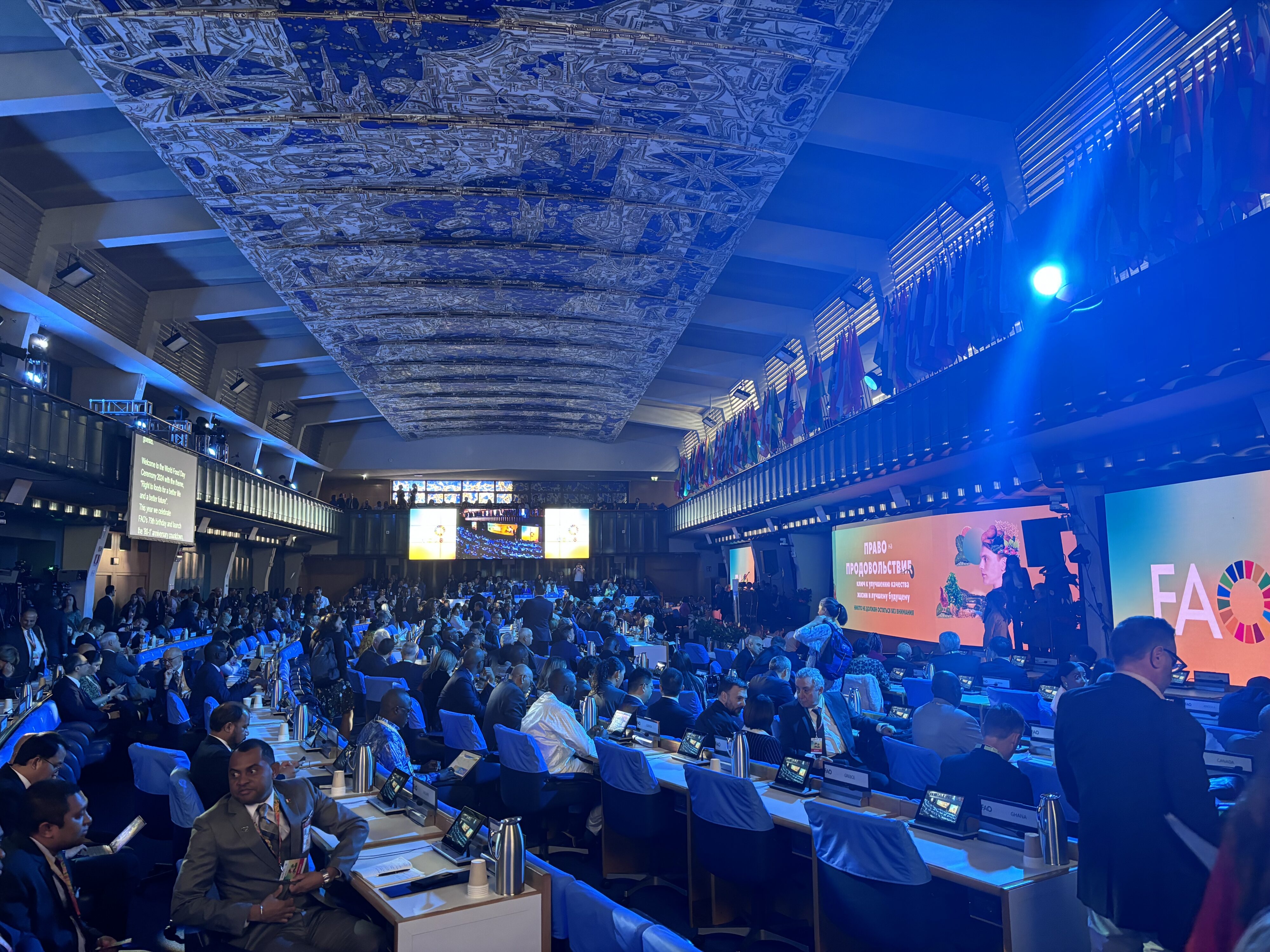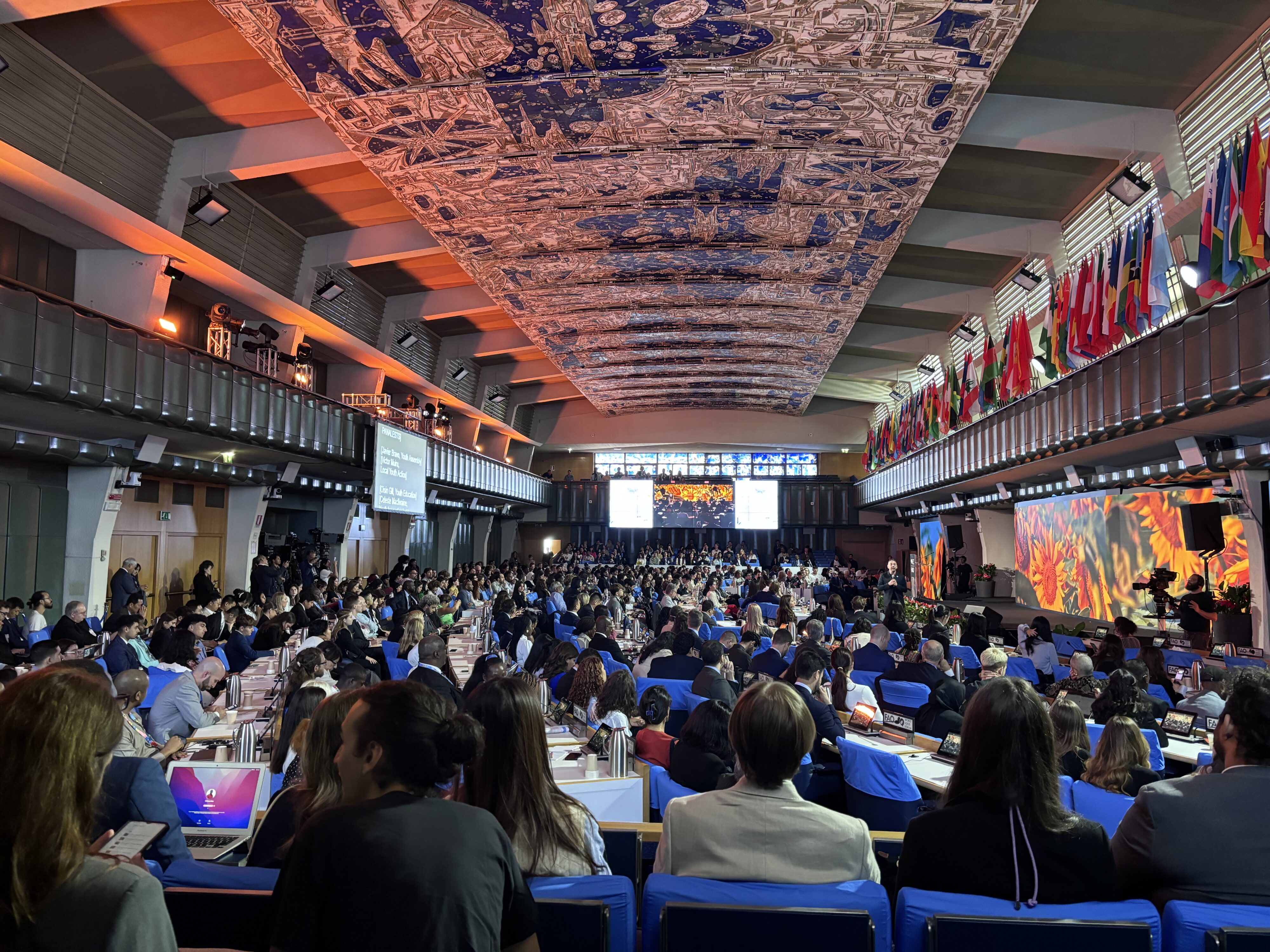
Maggie Rhoads

Maggie Rhoads
Water scarcity is one of the “greatest challenges” facing humanity, according to the Food & Agriculture Organization of the United Nations (FAO).
On Oct. 17, 2024, as a part of the World Food Forum in Rome, Italy, the FAO hosted a discussion session for high-level leaders and representatives to discuss their Global Framework on Water Scarcity in Agriculture, or WASAG.
WASAG is a partnership initiative of FAO and brings together “government agencies, international organizations, research institutions, advocacy groups and professional/membership organizations,” according to their website.
Their discussion session outlined 10 ways that WASAG plans to build upon their partnership with the FAO and combat water scarcity. The session had three goals in mind:
Water scarcity has already caused massive crop failures worldwide, and this issue will only continue to grow. The FAO reports that around the world we’ll need to produce 50% more food by 2050, when the global population is expected to hit 10 billion — requiring at least 25% more water. The broader goal of WASAG is to make water more accessible to ensure a higher level of food security.
“WASAG is core to FAO’s commitment to integrated water resources management for the effective transformation of global agrifood systems to be more efficient, more inclusive, more resilient and more sustainable,” FAO Director-General Qu Dongyu stated on the WASAG website.
WASAG was created in 2016 to help FAO uphold its commitments related to the 2030 Sustainable Development Agenda. WASAG focuses on Sustainable Development Goals 2 and 6, which include alleviating poverty and creating clean water and sanitation, respectively.

The 10 actions presented at the Rome conference ranged from supporting partnerships between WASAG and all FAO Member Nations that address water scarcity, to establishing a Technical Advisory Committee that would provide technical advice to WASAG members and partners.
The Technical Advisory Committee will meet twice a year as well as annually with the leaders of working groups and task forces. There are six groups of WASAG, including water and migration, drought preparedness, financing mechanisms, water and nutrition, sustainable agricultural water use, and saline agriculture.
One of the youth representatives from the World Food Forum Youth Assembly, Maggie Markow, suggested that the advisory committee would need to expand its scope to be successful.
“Let this water dialogue be a stark reminder water is just not technical, it is political, and it is our responsibility to ensure it is accessible to all,” Markow said.
Besides Markow, Dongyu also said people should not only learn the technology behind combating water scarcity but also learn why it is so important to fight against water scarcity and its related issues.

“We should be learning the spirit of fighting against the situations we are facing like climate and weather change,” Dongyu said.
WASAG ended their declaration reiterating they want to make all their resources established in other parts of the declaration available for their partners. They also stated they want to keep working with FAO, as supported by the Director of the Land and Water Division at FAO Li Lifeng.
“FAO is supporting all Member Countries to jointly address the water scarcity challenges. “WASAG is a flagship partnership in the FAO new water journey. We look forward to hearing solutions and experiences that can be brought to the global arena,” Lifeng stated on the WASAG website.